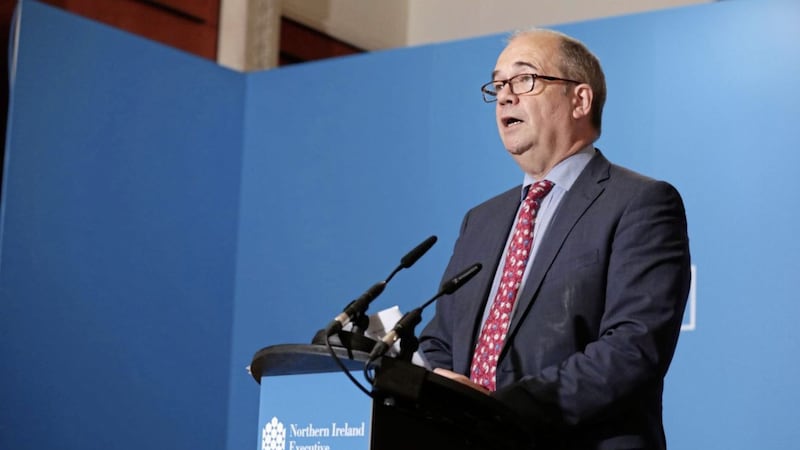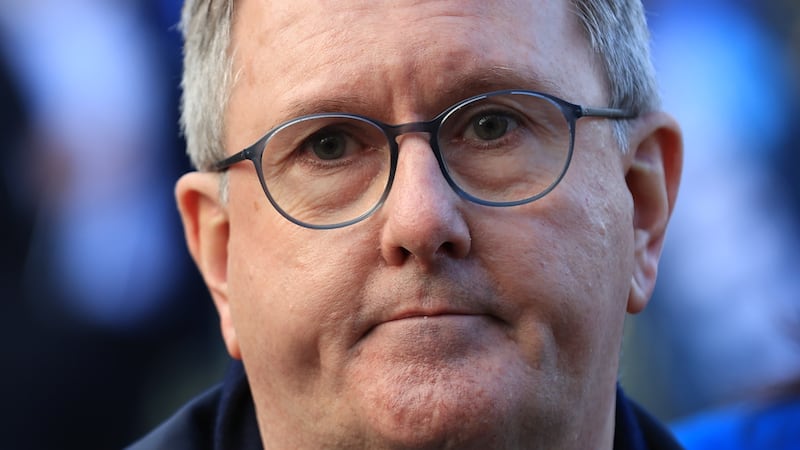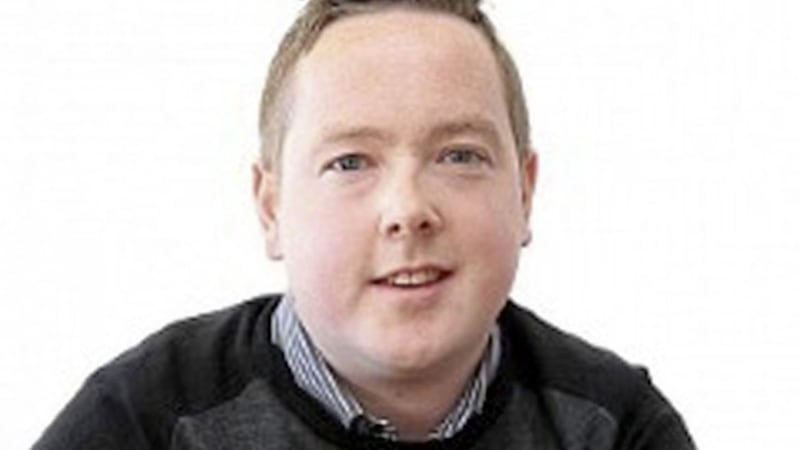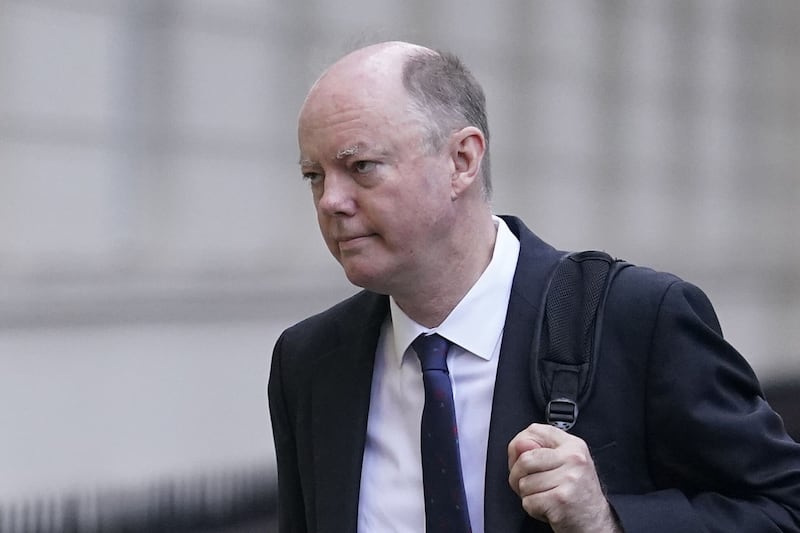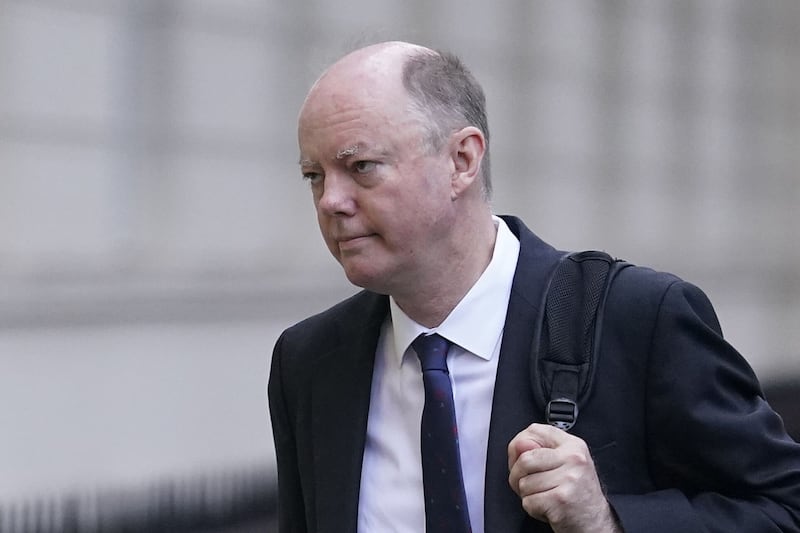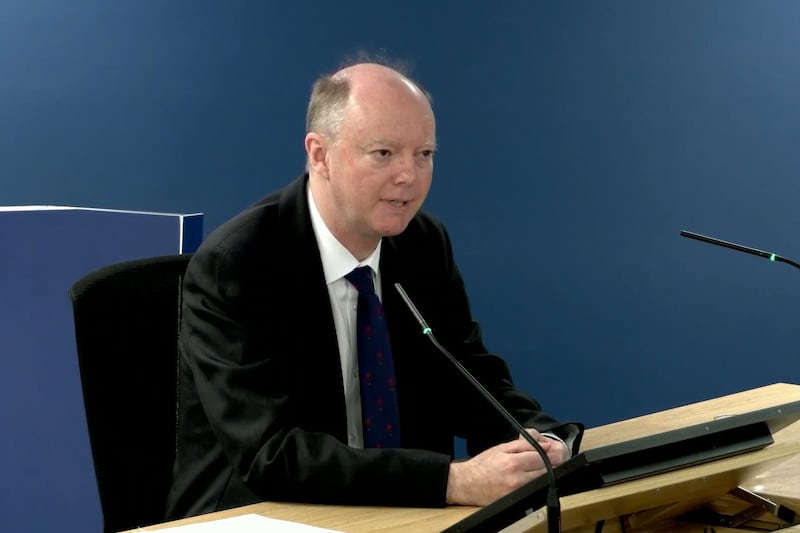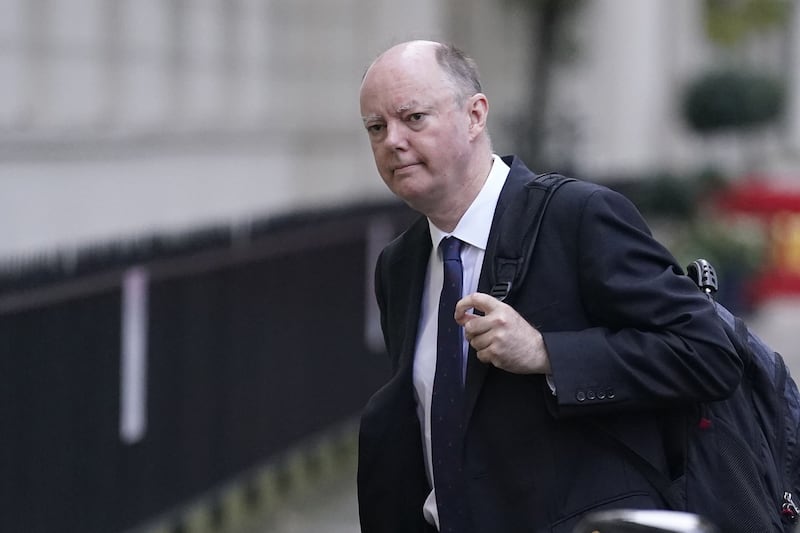CHIEF Medical Officer Dr Michael McBride has insisted he will "not allow" unsafe staffing levels in intensive care wards following reports of severe nursing shortages in the Nightingale hospital.
The north's most senior medic was responding to concerns raised by a trade union chief in yesterday's Irish News about the resignation of 15 ICU nurses from the Belfast trust and redeployment of less experienced staff to critical care.
Pat Cullen, director of the Royal College of Nursing (RCN), warned of "unprecedented" staffing pressures - particularly in the specialist Nightingale facility - and said some nurses felt "unsafe".
But Dr McBride, who addressed a media briefing yesterday, said while it was important not to underestimate the level of 'fatigue and burnout' of frontline workers, he and his Department of Health colleagues were committed to protecting staffing levels.
He noted that the health service was carrying out 72 per cent more 'routine activity' than during the first wave, when many non-Covid services were suspended.
"The physical ask and emotional ask of those working in ICU with Covid patients is immense: the wearing of PPE, the short breaks, the fact they're the only one there whilst individual family members say goodbye by FaceTime or video link. That is traumatising.
"...But we cannot and will not allow unsafe staffing or patients to be put at risk because of unsupervised or unsupported staff. That's incumbent upon all of us.
"I respect Pat Cullen as a colleague and she speaks very passionately about her concerns. I have those concerns too. We will continue to do all we can to support staff... However, we can all support them by following the basic steps and get transmission down."
The north's Chief Scientific Advisor, Professor Ian Young, told reporters there was "absolutely no doubt" the latest restrictions have had a "significant impact" on Covid cases and community transmission.
There has been a slow decline in new cases that has "stabilised" in recent days.
Hospital admissions are also slowing falling but "of particular concern" was the number of patients in hospitals, he said.
"The number of Covid patients is around 400, that figure has remained fairly steady and is at a significantly higher level than it reached in wave one," Prof Young said.
He said additional interventions to curb the spread of coronavirus are likely to be needed before Christmas to prevent hospitals becoming further overwhelmed.
Prof Young also said he looked forward to discussing with the hospitality sector what additional measures it can put in place to limit risk as much as possible when it reopens.
"There are some additional mitigations that might be useful," he said.
"Paying more attention to ventilation and possibility of limiting the numbers who can be present in various premises."
Meanwhile, the two medics said they were optimistic about recently-announced vaccine breakthroughs and advances in mass testing.
"It is a challenging time but it is important to indicate there is hope. There have been significant developments that offer a different prospect of a different spring and summer and a completely different winter next year," Dr McBride said.
Reacting to Prof Young's comments about the prospect of further restrictions next month, Colin Neill of Hospitality Ulster last night said he was seeking an urgent meeting with health minister Robin Swann to get clarity on how and when the sector can re-open "safely".
